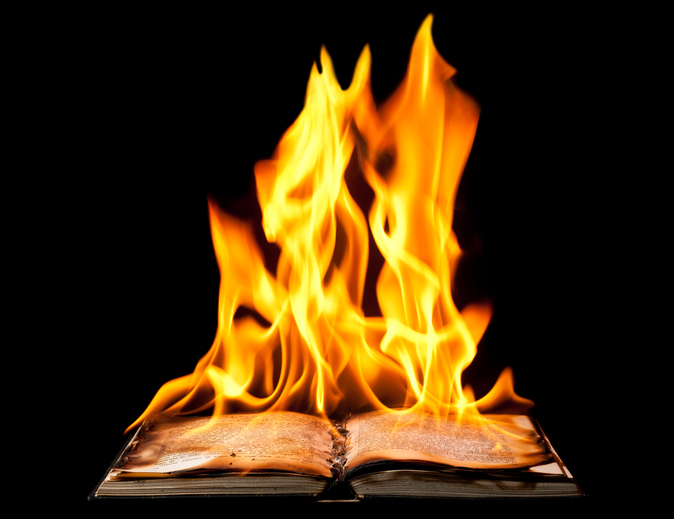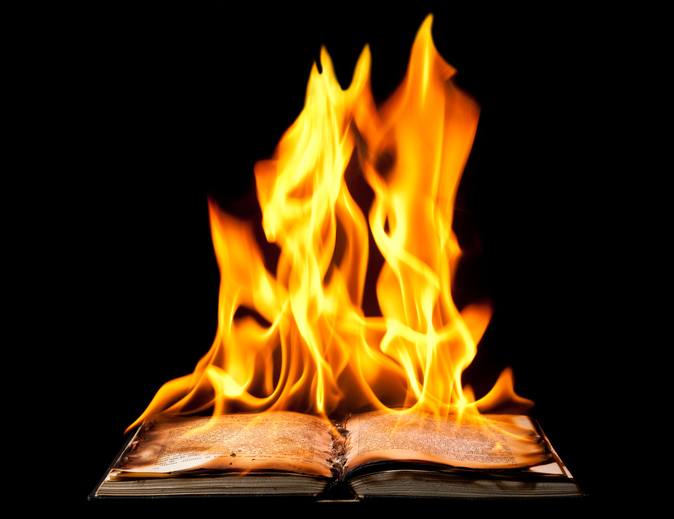Uncle John would never destroy his own work—he just couldn’t do that to all those poor little fun facts. Maybe it’s just different with fiction, because these authors didn’t want their unfinished work released after their deaths, and they went to great lengths to make sure their wishes were honored.
Edward Albee
Acclaimed American playwright Edward Albee died in 2016. Long before he died, the writer, who won three Pulitzer Prizes for his work, filed a will requesting “dead hand control”—a legal term that means he gets to say what happens to his work after he dies. For Albee, that includes specific instructions for how to produce already published work, and it also meant that he wanted all of his papers, including any plays he hadn’t quite finished, thoroughly destroyed.
Terry Pratchett
British author Terry Pratchett wrote some of the most popular (and funny) fantasy books ever published, such as Good Omens and the Discworld series. After a years-long struggle with Alzheimer’s disease, he passed away in March 2015. Fellow literary icon Neil Gaiman—who wrote Good Omens with Pratchett—announced thereafter that Pratchett had told him he wanted the computers that held whatever books he was working on when he passed away to be run over by a steamroller. In August 2017, Pratchett estate manager Rob Wilkins made good on the wish—he took the hard drive out of Pratchett’s computer and flattened it with a steamroller.
Franz Kafka
Franz Kafka is best known for darkly haunting psychological works like The Trial and “The Metamorphosis.” He wrote an untold amount of material…because he burned most of his own works when he didn’t think it was very good. As he succumbed to tuberculosis in the early 1920s, dying in 1924, he asked his friend Max Brod to be his literary executor. The main detail of the job was to round up any unfinished works Kafka left behind and destroy them. Brod didn’t agree with Kafka’s assessment or plans. He saved his friend’s stuff and got those works published, preserving Kafka’s literary legacy.
Vladimir Nabokov
Vladimir Nabokov contributed a few classics to literature, such as Lolita and Pale Fire. When he died in 1977, he left behind parts of a novel he intended to call The Original of Laura. He’d asked his wife, Vera, to destroy it upon his death, but she couldn’t bring herself to do it. When she died in 1997, The Original of Laura, still intact, passed on to Nabokov’s son, Dmitri. He, too, couldn’t bear to burn or shred the manuscript. It took him until 2008 to decide what to do: He denied his father’s request and published the book.









